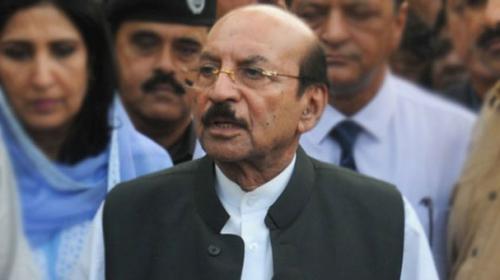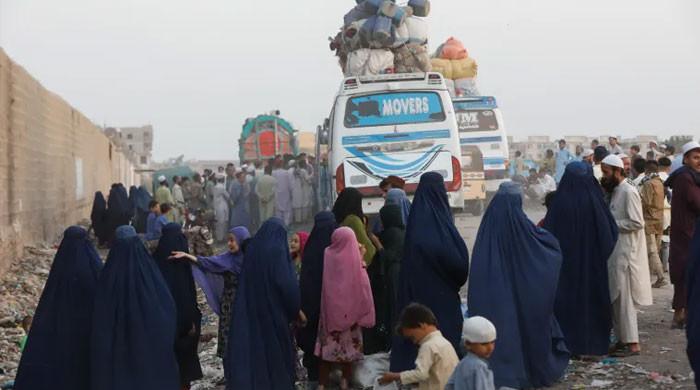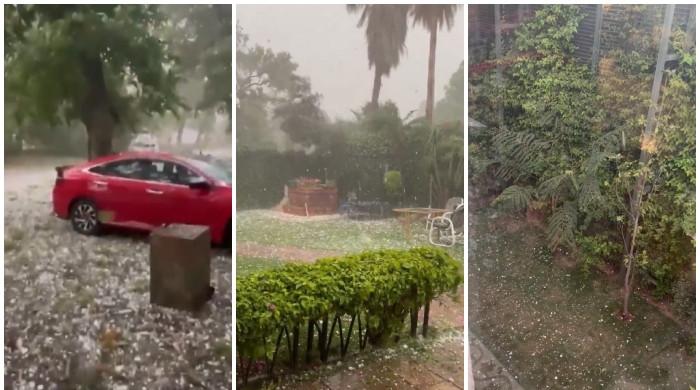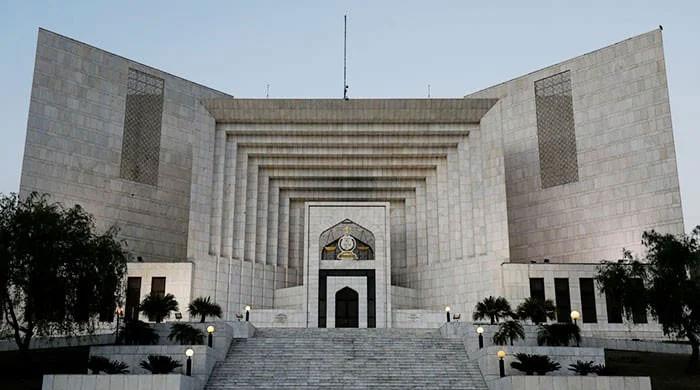Sindh to move court on Rangers issue if talks fail
KARACHI: The Sindh cabinet decided on Wednesday that if the federal government failed to address the concerns of the Sindh government on the powers of the Rangers, the court would be moved to defend...
December 24, 2015

The cabinet has given a full mandate to Chief Minister Syed Qaim Ali Shah to talk to Prime Minister Nawaz Sharif to resolve the lingering controversy over the anti-terror policing powers being given to the Sindh Rangers in Karachi. Qaim Ali Shah chaired the meeting at the Chief Minister’s House.
The special meeting of the cabinet termed unconstitutional the decision of the federal government to reject the summary of the Sindh government on the Rangers’ powers drafted on the basis of the resolution passed by Sindh Assembly on the issue.
The meeting also deemed the decision of the federal government to delegate powers on its own to the Sindh Rangers in accordance with Anti-Terrorism Act an act of interference in provincial affairs. The meeting decided that the Sindh CM would soon contact the prime minister on the issue to convey to him the version of the provincial government on the issue. The Sindh CM would request the prime minister that the provincial government should be taken into confidence on the decisions being taken by the federal government on the law and order situation of the province.
Qaim Ali Shah would also request the PM that authority should be delegated to the Rangers only after consulting the Sindh government while the Centre should avoid any decision in this regard on a unilateral basis.
The PM would also be told that the Federal Investigation Agency (FIA) and National Accountability Bureau (NAB), being federal agencies,
should avoid undue actions and raids on offices of government agencies and institutions in Sindh.
The cabinet decided that the Sindh government would not adopt a path of confrontation but would resort to exercising the option of reconciliation as a dialogue would be held with the federal government for resolving the controversy concerning the policing powers of the Sindh Rangers.
The meeting decided that if the federal government in the future failed to address concerns of the Sindh government on powers of Rangers, then as the final resort the courts would be moved to defend the cause of provincial autonomy. In this regard, every forum would be approached by the provincial authorities.
The cabinet members were of the view that the Centre as per the Constitution was bound to take the provincial government into confidence on steps being taken for restoring the law and order situation. This was necessary because the targeted operation in Karachi had been launched after taking the Sindh government on board while the CM had been made overall in-charge of the operation.
The cabinet meeting was of the view that the provincial government had proposed delegation of the same policing powers to Rangers which had been enjoyed by the paramilitary force in the past. But this time the only main condition proposed by the Sindh government was meant to make it binding upon the paramilitary force to provide timely intimation to the Sindh CM or to the concerned superior authority regarding any major action or high-profile arrest being made in connection with terrorism.
Meanwhile, the Sindh CM, while presiding over the cabinet meeting, said in his speech that his government was striving to improve the law and order situation in the province.
Inspector General Police, Sindh, Ghulam Hyder Jamali, and Home Secretary Muhammad Waseem briefed the cabinet on the law and order situation and the security plan of 12 Rabiul Awwal. “We have worked out a contingency plan for 12 Rabiul Awwal. Over 60,000 police force and more than 3,000 police mobiles would provide security to the rallies,” he said.
The IG said that he had already held a number coordination meetings with Ulema and other concerned people. “We have also made arrangements to deploy policemen plainclothes,” he said.—Originally published in The News











